Today, May 14, we celebrate the feast of Saint Vincent of Lerins (died 445), monk and leading theologian of the church of Gaul, and author of the Commonitorium—a guide to orthodox Catholic teaching. In his writings, Saint Vincent strove to eradicate heresies, and offered instruction for the discernment of true and false tradition via what has come to be known as the Vincentian Canon: “quod ubique, quod semper, quod ab omnibus credituni est:” "what has been believed everywhere, always, and by all.” Saint Vincent believed that the ultimate source of Christian truth was Holy Scripture and that the authority of the Church was to be invoked to guarantee the correct interpretation of Scripture.
Vincent was born to a noble family in Gaul (modern-day France), and was likely the brother of Saint Lupus. Bishop of Troyes. As a young man, Vincent served in the army as a soldier, but later embraced the monastic life, settling on the island of Lerins off the southern coast of France. There, he wrote, he could “avoid the concourse and crowds of cities... I can follow without distraction the Psalmist's admonition, “Be still, and know that I am God.” Vincent was ordained at Lerins, and set about writing his work, the Commonitorium, a "Reminder," where he wrote down "those things which I have truthfully received from the holy Fathers," which they "have handed down to us and committed to our keeping."
St. Vincent lived in an age of great historical change: constant invasions threatened Christians society, and the foundations of the faith had been only recently been solidified via Ecumencial Council. Based upon this uncertainty, Saint Vincent strove tirelessly to preserve the authority of Christian tradition. He was not opposed to progress or doctrinal development, recognizing that as society evolves, so do challenges requiring a solid Christian response and teaching. In his words, "...but it must be progress in the proper sense of the word, and not a change in faith. Progress means that each thing grows within itself, whereas change implies that one thing is transformed into another .... The growth of religion in the soul should be like the growth of the body, which in the course of year develops and unfolds, yet remains the same as it was."
Saint Eucherius of Lyons referred to Saint Vincent as "a jewel shining with the brilliance of his spiritual life.” His Acts are recorded by Gennadius:
“Vincentius, the Gaul, presbyter in the Monastery on the Island of Lerins, a man learned in the Holy Scriptures and very well informed in matters of ecclesiastical doctrine, composed a powerful disputation, written in tolerably finished and clear language, which, suppressing his name, he entitled 'Peregrinus against heretics'. The greater part of the second book of this work having been stolen, he composed a brief reproduction of the substance of the original work, and published in one book. He died in the reign of Theodosius and Valentinianus.”
From a homily by Father James Thorton: “In his great work, the Saint tells us that we may discover the truth first through reading Holy Scripture, for that is the basis of everything. Yet, he points out, men may differ in their interpretation of Holy Scripture. How may we know which interpretation is the correct one? We know by consulting the writings of authorities within the Church, the great Saints and Church Fathers, and this we do carefully. In Saint Vincent’s words: “[I]n the Catholic Church itself, all possible care must be taken, that we hold that faith which has been believed everywhere, always, by all. For that is truly and in the strictest sense ‘Catholic,’ which, as the name itself and the reason of the thing declare, comprehends all universally. This rule we shall observe if we follow universality, antiquity, and consent. We shall follow universality if we confess that one faith to be true, which the whole Church throughout the world confesses; antiquity, if we in no wise depart from those interpretations which it is manifest were notoriously held by our holy ancestors and fathers; consent, in like manner, if in antiquity itself we adhere to the consentient definitions and determinations of all, or at the least of almost all priests and doctors.”
Saint Vincent of Lerins reminds us that progress should not occur at the expense of tradition and the long-standing tenets and beliefs of the faithful. In a society where change is considered the hallmark of progress, we might reflect on the orthodoxy of Saint Vincent, as an inspiration and reminder of the long-standing traditions of the Church, and their firm grounding in the teachings of Jesus Christ.
From the Commonitorium:
CHAPTER IV: What Must be Believed by Catholics
(1) I have continually given the greatest pains and diligence to inquiring, from the greatest possible number of men outstanding in holiness and in doctrine, how I can secure a kind of fixed and, as it were, general and guiding principle for distinguishing the true Catholic Faith from the degraded falsehoods of heresy. And the answer that I receive is always to this effect; that if I wish, or indeed if anyone wishes, to detect the deceits of heretics that arise and to avoid their snares and to keep healthy and sound in a healthy faith, we ought, with the Lord's help, to fortify our faith in a twofold manner, firstly, that is, by the authority of God's Law, then by the tradition of the Catholic Church.
(2) Here, it may be, someone will ask, Since the canon of Scripture is complete, and is in itself abundantly sufficient, what need is there to join to it the interpretation of the Church? The answer is that because of the very depth of Scripture all men do not place one identical interpretation upon it. The statements of the same writer are explained by different men in different ways, so much so that it seems almost possible to extract from it as many opinions as there are men. Novatian expounds in one way, Sabellius in another, Donatus in another, Arius, Eunomius and Macedonius in another, Photinus, Apollinaris and Priscillian in another, Jovinian, Pelagius and Caelestius in another, and latterly Nestorius in another. Therefore, because of the intricacies of error, which is so multiform, there is great need for the laying down of a rule for the exposition of Prophets and Apostles in accordance with the standard of the interpretation of the Church Catholic.
(3) Now in the Catholic Church itself we take the greatest care to hold that which has been believed everywhere, always and by all. That is truly and properly 'Catholic,' as is shown by the very force and meaning of the word, which comprehends everything almost universally. We shall hold to this rule if we follow universality [i.e. oecumenicity], antiquity, and consent. We shall follow universality if we acknowledge that one Faith to be true which the whole Church throughout the world confesses; antiquity if we in no wise depart from those interpretations which it is clear that our ancestors and fathers proclaimed; consent, if in antiquity itself we keep following the definitions and opinions of all, or certainly nearly all, bishops and doctors alike.
(4) What then will the Catholic Christian do, if a small part of the Church has cut itself off from the communion of the universal Faith? The answer is sure. He will prefer the healthiness of the whole body to the morbid and corrupt limb. But what if some novel contagion try to infect the whole Church, and not merely a tiny part of it? Then he will take care to cleave to antiquity, which cannot now be led astray by any deceit of novelty. What if in antiquity itself two or three men, or it may be a city, or even a whole province be detected in error? Then he will take the greatest care to prefer the decrees of the ancient General Councils, if there are such, to the irresponsible ignorance of a few men. But what if some error arises regarding which nothing of this sort is to be found? Then he must do his best to compare the opinions of the Fathers and inquire their meaning, provided always that, though they belonged to diverse times and places, they yet continued in the faith and communion of the one Catholic Church; and let them be teachers approved and outstanding. And whatever he shall find to have been held, approved and taught, not by one or two only but by all equally and with one consent, openly, frequently, and persistently, let him take this as to be held by him without the slightest hesitation.
CHAPTER XIV: Jesus Christ: Man in Truth, not in Semblance
BUT when we use the word "Person," and say that God became man by means of a Person, there is reason to fear that our meaning may be taken to be, that God the Word assumed our nature merely in imitation, and peformed the actions of man, being man not in reality, but only in semblance, just as in a theatre, one man within a brief space represents several persons, not one of whom himself is. For when one undertakes to sustain the part of another, he performs the offices, or does the acts, of the person whose part he sustains, but he is not himself that person. So, to take an illustration from secular life and one in high favour with the Manichees, when a tragedian represents a priest or a king, he is not really a priest or a king. For, as soon as the play is over, the person or character whom he represented ceases to be. God forbid that we should have anything to do with such nefarious and wicked mockery. Be it the infatuation of the Manichees, those preachers of hallucination, who say that the Son of God, God, was not a human person really and truly, but that He counterfeited the person of a man in reigned conversation and manner of life.
But the Catholic Faith teaches that the Word of God became man in such wise, that He took upon Him our nature, not feignedly and in semblance, but in reality and truth, and performed human actions, not as though He were imitating the actions of another, but as performing His own, and as being in reality the person whose part He sustained. Just as we ourselves also, when we speak, reason, live, subsist, do not imitate men, but are men. Peter and John, for instance, were men, not by imitation, but by being men in reality. Paul did not counterfeit an apostle, or feign himself to be Paul, but was an apostle, was Paul. So, also, that which God the Word did, in His condescension, in assuming and having flesh, in speaking, acting, and suffering, through the instrumentality Of flesh, yet without any marring of His own divine nature, came in one word to this:--He did not imitate or feign Himself to be perfect man, but He shewed Himself to be very man in reality and truth. Therefore, as the soul united to the flesh, but yet not changed into flesh, does not imitate man, but is man, and man not feignedly but substantially, so also God the Word, without any conversion of Himself, in uniting Himself to man, became man, not by confusion, not by imitation, but by actually being and subsisting. Away then, once and for all, with the notion of His Person as of an assumed fictitious character, where always what is is one thing, what is counterfeited another, where the man who acts never is the man whose part he acts. God forbid that we should believe God the Word to have taken upon Himself the person of a man in this illusory way. Rather let us acknowledge that while His own unchangeable substance remained, and while He took upon Himself the nature of perfect man, Himself actually was flesh, Himself actually was man, Himself actually was personally man; not feignedly, but in truth, not in imitation, but in substance; not, finally, so as to cease to be when the performance was over, but so as to be, and continue to be substantially and permanently.
Year 2: Day 134 of 365
Prayer Intentions: Belief in the teachings and traditions of the Church.
Requested Intentions: For personal intentions (A); Restoration of lost hearing (C); Resolution of relational and financial challenges (S); Comfort following loss of husband, security for family, assistance with housing (B); Healing and return of brother (O); Successful hermitage foundation (S); Support from family, permission to marry (H); Recovery of wife following surgery, freedom from depression (W); Protection and recovery of mentally ill daughter (J); Successful resolution to legal proceedings (N); Freedom from worry and successful employment (M); For successful sale of home and freedom from debt (J); Freedom from pain and illness (E); For successful living arrangements, travels, health, and studies (F); Healing, successful studies, financial success (F); For husband’s successful employment (Y); For children’s faith journey; Recovery of a friend suffering from addiction (M); Successful employment (P); Obedience to the will of the Lord (J); Financial recovery (S); Freedom from evil influence (I); Recovery from illness (J); Freedom from addiction (J); Successful transplant surgery (K); Healing for a daughter (T); Acceptance into school (V); Successful immigration; for a sister’s career and marriage (F); Financial recovery; Successful ministry (A); Financial ability to send children to school (S); Safe return of a runaway (J); Healing of a family (J).
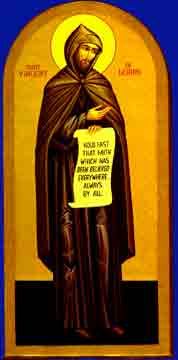
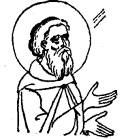
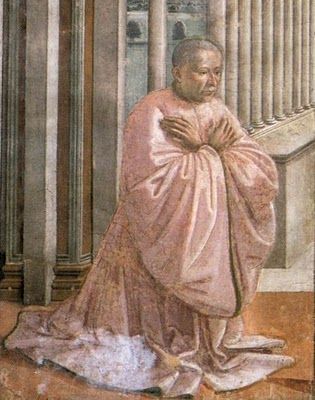
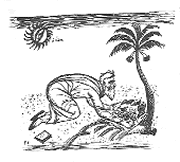
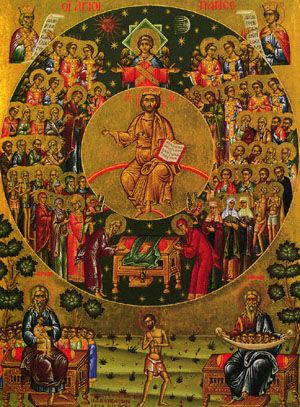
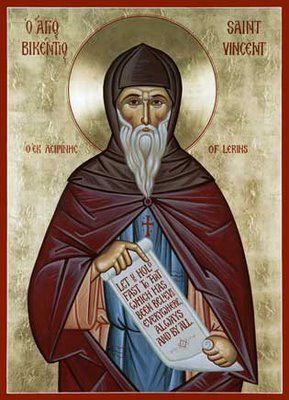
No comments:
Post a Comment
Thanks for leaving a comment. If you wish to submit a prayer request, however, please do so above, using the "Contact" tab.